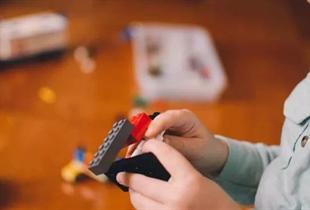How to talk to your kids about coronavirus
Casey Wolfington
Wednesday, March 18, 2020

It can be confusing to determine how much (or how little) to share with your kiddos during times of uncertainty. As a parent, we want to provide support and reduce anxiety. However, with fast-paced global challenges, such as COVID-19, this can be incredibly difficult.
Eagle Valley Behavioral Health, an outreach of Vail Health, has identified some strategies specific to children that can be useful during this period.
Limit children’s exposure to media
It is always important to monitor what a child is viewing through media channels. However, during times of global distress, this becomes increasingly important. Media is often overwhelming for adults; however, children may lack the cognitive understanding to fully comprehend the content of the news, leading to increased anxiety, “what-if” thinking, panic, and agitation.
Provide an open space
Often parents feel that they must have all the answers when talking with their children. However, it is most important to provide an open and trusting space to talk.
Perhaps beginning a conversation with, “You may have heard some things about an illness that is going around, coronavirus. What type of things have you heard?” Having regular, open conversations about feelings, fears, and thoughts is linked with psychological wellness in children. Remember, it is OK to not have all the answers. It is also never too early to begin these conversations.
Maintain a schedule
Closures, isolation, and quarantine may impact your family’s daily routine. However, it is useful to attempt to maintain normal routines and schedules, even if this means doing so within your home. Utilize technology to encourage peer interactions and social support (for adults and children). Creating a sense of routine and structure can increase a child’s sense of internal control and comfort.
Understand typical responses
We need to remember that with the level of stress and uncertainty, the majority of people (children or adults) will have some level of a stress response. In young children, this can include nightmares, regression of previously mastered skills (bedwetting/accidents), increased separation anxiety, increased acting out (behaviors/tantrums), or physical symptoms (bellyaches/headaches).
Older children may demonstrate increased moodiness, sleep difficulties, anxiety about missing social support, fear of social rejection, and/or social withdrawal. If you become concerned about yourself or your children, seek help.
Several providers in our community are able to provide telehealth support through HIPAA compliant video conferencing options. The EVBH Therapist Finder website is an excellent resource to identify additional behavioral health support for your family. Visit http://www.eaglevalleybh.org for more information.
It is important for parents and caregivers to reassure children and loved ones that we have plans to manage the current situation and keep them safe.
Dr. Casey Wolfington is a licensed psychologist and the community behavioral health director with Eagle Valley Behavioral Health. She has been providing services in the community for more than 12 years.
Spanish translation
Puede ser confuso determinar cuánto (o cuán poco) compartir con sus hijos en tiempos de incertidumbre. Como padres, queremos brindar apoyo y reducir la ansiedad. Sin embargo, con desafíos globales de rápida evolución, como el COVID-19, esto puede ser increíblemente difícil. Eagle Valley Behavioral Health, un servicio de Vail Health, ha identificado algunas estrategias específicas para niños que pueden ser útiles durante este período.
Limite la exposición a las redes sociales
Siempre es importante controlar lo que un niño está viendo a través de las redes sociales. Sin embargo, en tiempos de angustia global, esto se vuelve aún más importante. Los medios de comunicación son abrumadores para los adultos. Sin embargo, los niños pueden carecer de la comprensión cognitiva necesaria para entender completamente el contenido de las noticias, llevándolos a tener más ansiedad, pensamientos negativos, pánico y agitación.
Proporcionar un espacio abierto
Los padres sienten que deben tener todas las respuestas cuando hablan con sus hijos. Sin embargo, es más importante proporcionar un espacio abierto y de confianza para hablar. Tal vez comenzar una conversación con “Es posible que hayas escuchado algunas cosas sobre una enfermedad que se está transmitiendo, Coronavirus. ¿Qué tipo de cosas has escuchado?” Tener conversaciones regulares y abiertas sobre sentimientos, miedos y pensamientos está relacionado con el bienestar psicológico en los niños. Recuerde, está bien no tener todas las respuestas, y nunca es demasiado temprano para iniciar estas conversaciones.
Mantener un horario
Los cierres, el aislamiento y la cuarentena pueden afectar la rutina diaria de su familia. Sin embargo, es útil intentar mantener rutinas y horarios normales, incluso si esto significa hacerlo dentro de su hogar. Utilice la tecnología para fomentar las interacciones de adultos y niños con sus compañeros o colegas, y el apoyo social. Mantener una rutina y proveer estructura puede aumentar el autocontrol y comodidad del niño.
Comprenda las respuestas típicas
Debemos recordar que la mayoría de personas (adultos o niños) demostrarán alguna reacción a los niveles de estrés e incertidumbre. En los niños pequeños, esto puede incluir pesadillas, regresión de habilidades previamente dominadas (micciones incontroladas/accidentes), aumento de la ansiedad por separación, aumento de comportamientos impulsivos (pataletas/berrinches) o síntomas físicos (dolores de estómago/cabeza). Los niños mayores pueden demostrar peor humor, dificultad para dormir, ansiedad por falta de apoyo, miedo al rechazo o retraimiento social. Si estás preocupado por ti o por tus hijos, busca ayuda. Muchos proveedores en nuestra comunidad pueden brindar apoyo mediante opciones de videollamada que cumplen con los requisitos de privacidad y confidencialidad (HIPPA). El sitio web EVBH Buscador de Terapeutas es un recurso excelente para identificar apoyo adicional de salud conductual para su familia. Para más información, visite http://www.eaglevalleybh.org.
Es importante que los padres y cuidadores les aseguren a sus niños y seres queridos que tenemos planes para manejar la situación actual y mantenerlos a salvo.